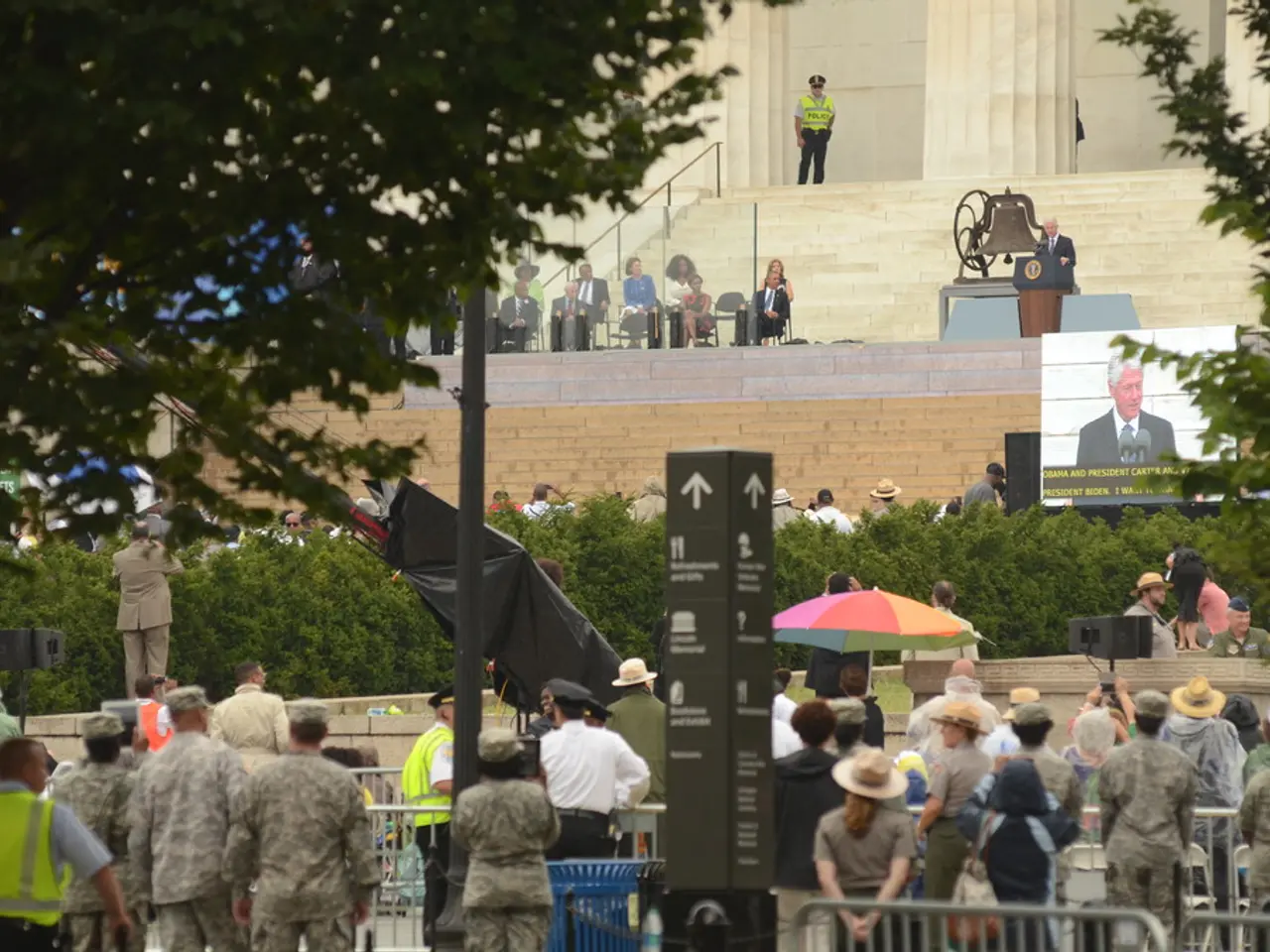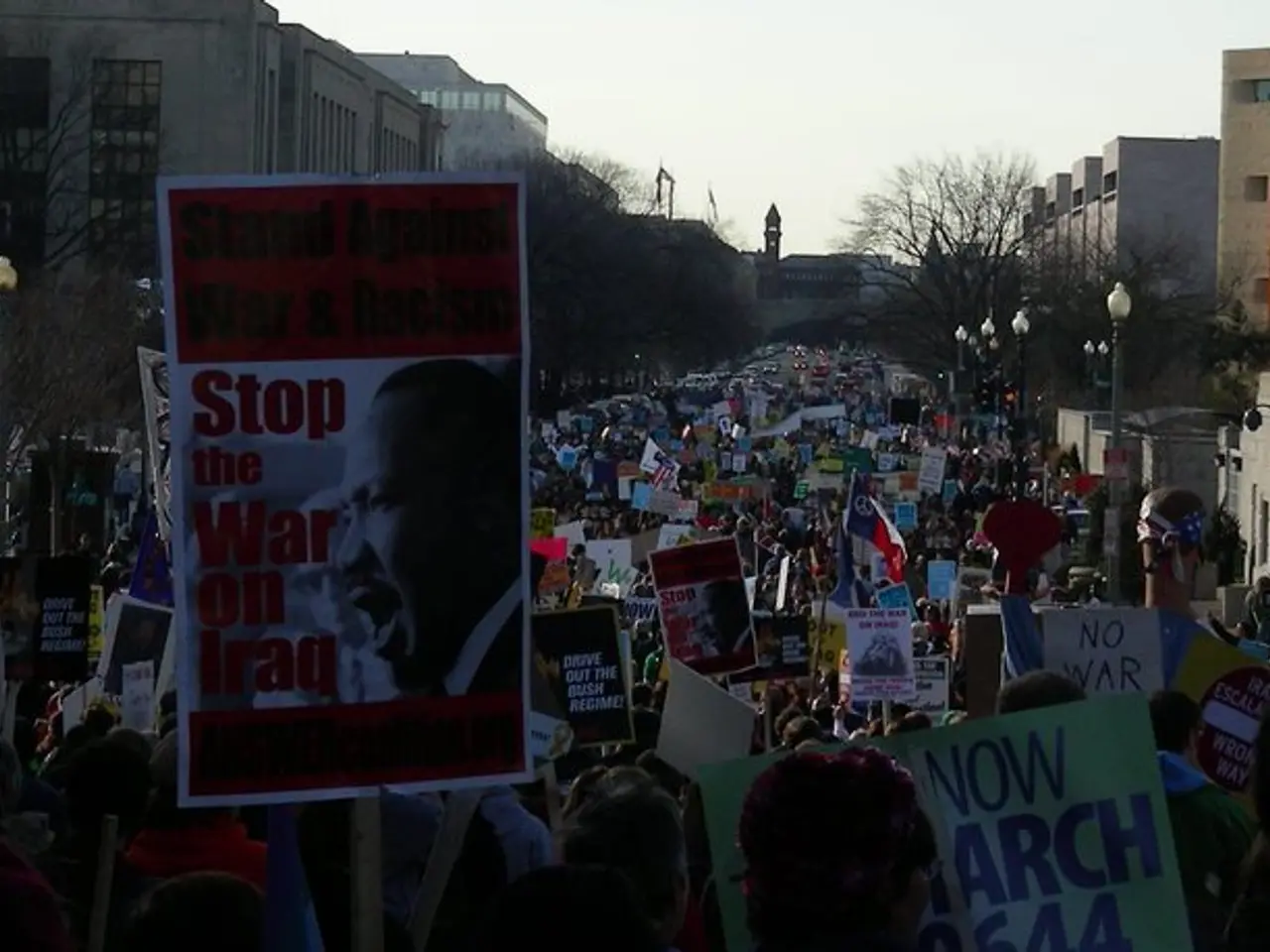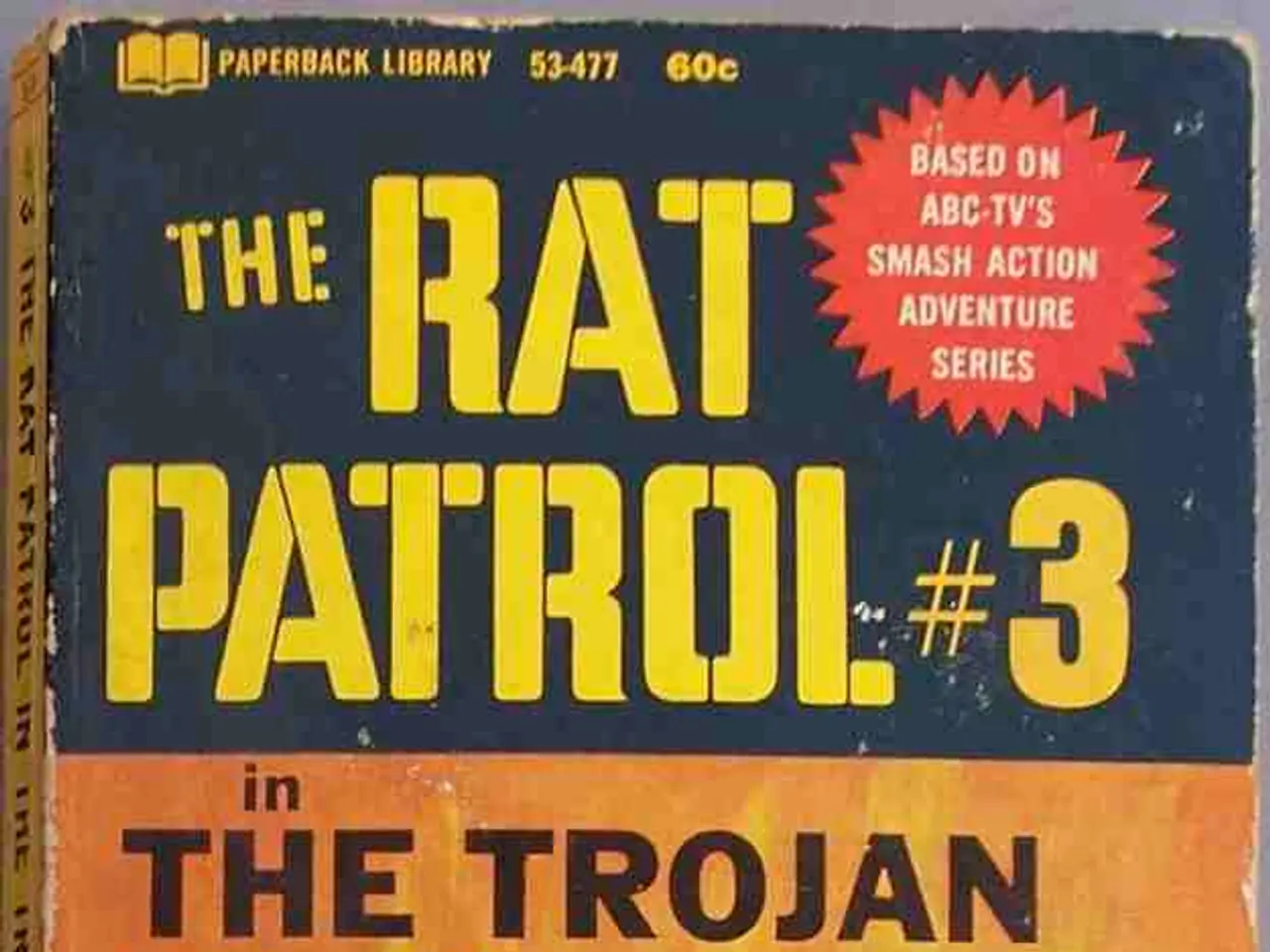Trump's proposed Iran strike sparks backlash among supporters from his MAGA fanbase
Pulling the Brakes: The Anti-War Republican Base's Apprehension Over Iran
As the specter of potential U.S. action against Iran looms, a rift has surfaced among the supporters who thrust President Donald Trump into office, with a faction of his fervent base expressing concerns over a new Middle East war. Even his close friends like Steve Bannon, a prominent Republican and staunch ally, have found themselves at odds with the President, advocating for a more measured approach.
Bannon, one of the influential voices of the so-called "America First" coalition, recently cautioned against rushing into a military confrontation with Iran, particularly in the absence of a diplomatic resolution. He voiced his apprehensions at a Christian Science Monitor event, imploring caution: "We can't do this again... We'll tear the country apart. We can't have another Iraq."
According to public opinion data, the sentiment among the American populace is unmistakable: minimal support for Military intervention in the tense standoff between Iran and Israel, with only 16% of citizens, and less than a quarter of Republicans endorsing such a move.[1] The historical legacy of Middle East conflicts lingers, breeding a widespread wariness among the public about plunging into another "forever war" following two decades of involvement in Afghanistan and continued presence in Iraq.[1]
Bannon emphasized the necessity of a clear and compelling justification for any aggressive action against Iran, not merely for the MAGA supporters but for the broader American populace, given the lingering impact of past conflicts.[1][2] While Bannon may be critical of some Republicans advocating fiercer support for Israel, he maintains a nuanced stance within the Republican circles, shying away from criticizing Trump himself and defending his Cabinet officials, even the hawkish ones like Secretary of State Marco Rubio.[1]
Other Trump allies, such as Vice President JD Vance, have attempted to diffuse the rumblings of dissent, defending the President's stance on foreign policy in a social media post. Meanwhile, other Trump allies like Tucker Carlson, noted conservative commentator, and Representative Marjorie Taylor Greene have voiced their reservations against active U.S. involvement in the Iran-Israel conflict, expressing fatigue with foreign wars.[1]
Senator Lindsey Graham of South Carolina, on the other hand, has advocated for the U.S. to support Israel in curtailing the Iranian threat, which he deems as "existential."[1] The divide between the anti-interventionists and the hawks was evident in a heated exchange between Carlson and Senator Ted Cruz on Carlson's streaming program.[1]
As the decision-making process unfolds, allies and opponents alike await Trump's actions. Trump declared on Wednesday afternoon that he had ideas on how to proceed but had yet to arrive at a decision.[1] The unease among ranks of the MAGA coalition manifests, as they grapple with the potential consequences of another international entanglement.
The anti-war Republican base, a significant portion of President Donald Trump's support, is expressing worries about a new war with Iran, diverging from the President's stance on this sensitive issue. Steve Bannon, a prominent member of the "America First" coalition, advocates for careful diplomatic consideration, fearing another Middle East war will resemble the devastating aftermath of the Iraq war. The latter is a reflection of policy-and-legislation, political, and general-news discussions, which center around war-and-conflicts, specifically the U.S.'s potential role in the Iran-Israel tension.





